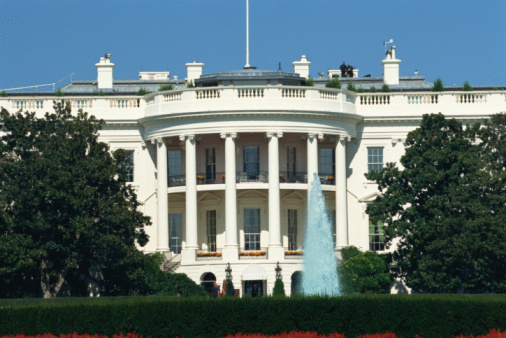There is an awful lot of government going on in Washington. Which is what happens when you spend $3.8 trillion – as DC is doing this year. Up from $2.9 trillion just five years ago. We’ve increased the size of the Leviathan by just short of 25% under President Barack Obama.
In 2013 came the budget sequestration – $85 billion in spending cuts. So we increased by $900 billion – then rolled it back $85 billion. We’re still up 90+% over 2008 – not exactly Draconian or austere.
That every penny in this nearly $4 trillion annual pile is vitally important, being spent wisely and well – and in fact isn’t nearly enough – is one of the colossally dubious arguments of all time. Yet many make it.
Obama: The Economy Is Weak Because The Government Isn’t Spending Enough
Government is Hurting the Economy – By Spending Too Little
We All Agree That Spending Cuts Hurt the Economy. Right? Right.
Mandatory Federal Cuts Hurt Private Sector, Too
President Calvin Coolidge’s last budget was smaller than his first – and was a MUCH smaller portion of the nation’s Gross Domestic Product (GDP).
1923
Federal outlay: $3.14 billion.
GDP: $85 billion.
% of GDP: 3.7%.
1929
Federal outlay: $3.13 billion.
GDP: $103 billion.
% of GDP: 3.0%.
Federal spending flatlined. And the private economy grew by nearly 20%. Roaring Twenties, indeed. And note the now-freakishly minuscule portion of the nation’s economy the feds spent – less than 4%.
How about under President Obama?
2008
Federal outlay: $2.9 trillion.
GDP: $14.2 trillion.
% of GDP: 20.4%.
2012
Federal outlay: $3.54 trillion.
GDP: $15.7 trillion.
% of GDP: 22.5%.
The Feds have basically built the 2009 “Stimulus” into every subsequent year. They have grown even further their obscene chunk of the GDP. And added nearly $7 trillion to the federal debt. How’s that Huge Government been working?
33 Shocking Facts Which Show How Badly The Economy Has Tanked Since Obama Became President
Since Obama has been president, seven out of every eight jobs that have been “created” in the U.S. economy have been part-time jobs.
The number of full-time workers in the United States is still nearly 6 million below the old record that was set back in 2007 (under the eeeeevil, failed President George W. Bush).
40 percent of all workers in the United States actually make less than what a full-time minimum wage worker made back in 1968.
During the first four years of Obama, the number of Americans “not in the labor force” soared by an astounding 8,332,000. That far exceeds any previous four year total.
During Obama’s first term, the number of Americans on food stamps increased by an average of about 11,000 per day.
To expect our economy to recover and grow when the Leviathan takes and spends a quarter of what it creates is asking a bit much. To say it isn’t nearly enough is absurd on stilts.
So to paraphrase Clint Eastwood, “When something isn’t doing the job, we’ve got to let it go.” Big Government isn’t getting it done – we’ve got to let a lot of it go.
There are Departments, Agencies, Boards and Commissions that can be closed entirely – with negligible to no negative effect. In fact, it would do quite a lot of good.
Human beings have engaged in commerce for ten thousand years. We did it for 9,900 years without a Department of Commerce. We have been educating our children since we’ve been having them. And we did so until 1979 without a Department of Education.
The Federal Communications Commission (FCC) maybe – maybe – served a purpose once upon a time. It began in 1926 as the Federal Radio Commission – created basically to make sure people didn’t broadcast on top of one another. It was transmogrified into the FCC by the 1934 Communications Act.
Flash forward to today. The FCC is a bureaucracy looking for shreds of relevancy to the modern communications landscape – which has long since left it in the dust. Most of what it does is damaging. And/or redundant – also handled by one or more other arms of the Leviathan. Or it alone does things that could ably be handled elsewhere in the federal web. At this point, the FCC basically just adds a layer of harmful, communications-specific redundancy.
The FCC approves or denies media mergers. But so do the Federal Trade Commission (FTC) and the Department of Justice – just as these two do for all major deals. The FCC looks to ensure media competition – just as the FTC does on all things. The FCC peeks in on homeland security – where we have the FBI, Homeland Security, and myriad other departments. Do we really need to add the FCC to the Frisk Us Parties at airports?
Idle bureaucrat hands are the Devil’s playground. Under President Obama, they have been Disneyland. In duplicative regulatory fashion, and/or with no authority whatsoever or little to no market reason to do so, the Obama FCC has:
1. Imposed Network Neutrality.
2. Asked Congress to insert it into what should be a private sector secondary spectrum market auction.
3. Been contemplating the imposition of anti-free market rules for said auction (which is probably why it asked Congress to insert it).
4. Imposed cell phone price caps.
5. Imposed prison phone call price caps.
6. Time and again micro-managed cable TV’s channel placement.
Amongst other anti-free market, utterly unnecessary things.
We as a nation need to be looking for many, many ways to cut government (sadly, of course, we really aren’t). A good place to hack is a 1930s New Deal holdover Commission whose sector long ago passed it by. A Commission that increasingly looks to illegally assert its non-existent authority – in some vain attempt at relevance, in search of something to do.
We should at the very least dramatically limit the FCC to what it alone handles. Or determine what other departments can do those finite things, re-allot them – and shudder the Commission.
Which would certainly free up the private sector to create a lot of additional coin. And allow for the Feds to take a little less of it.


